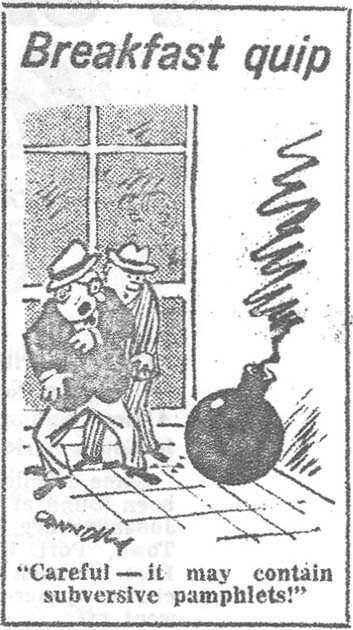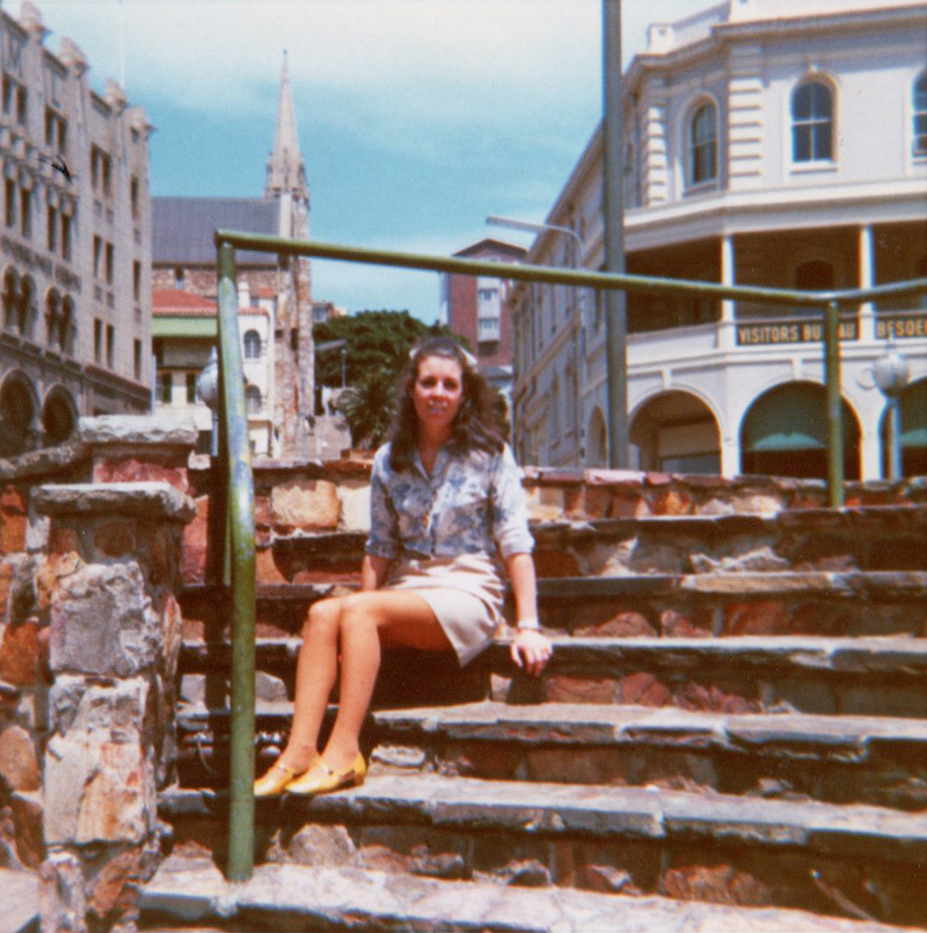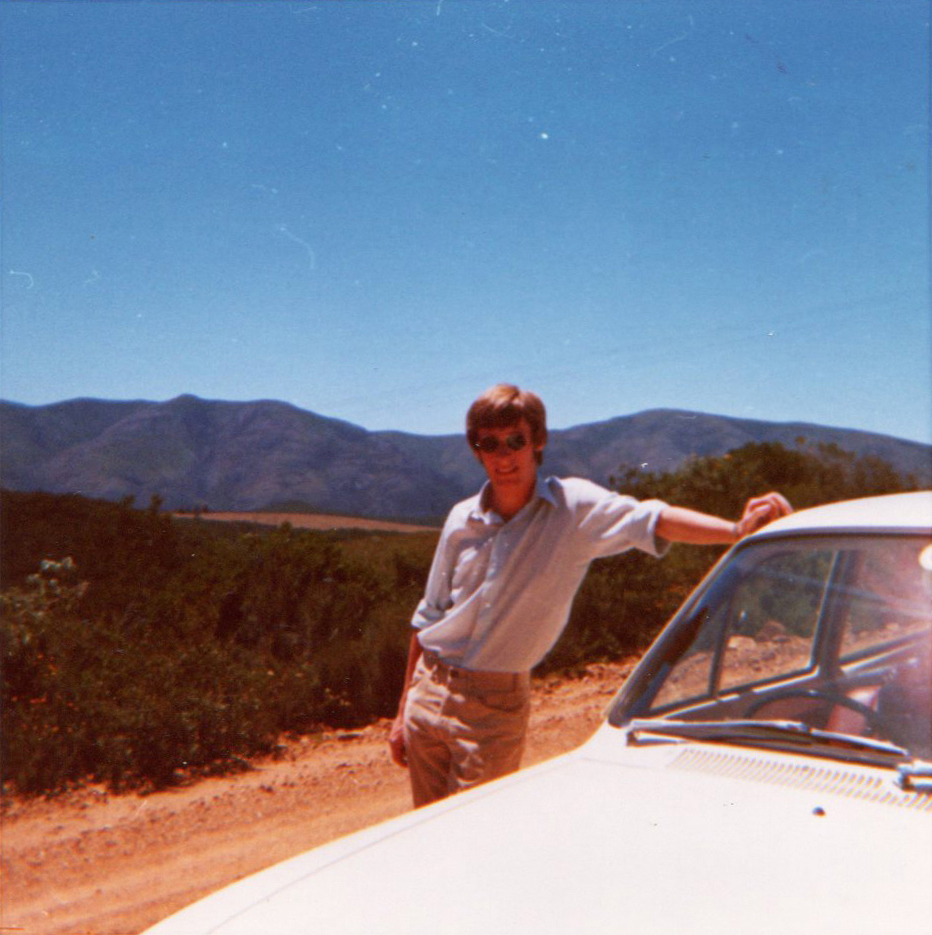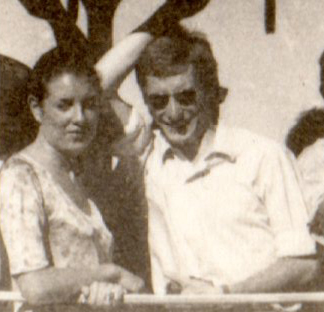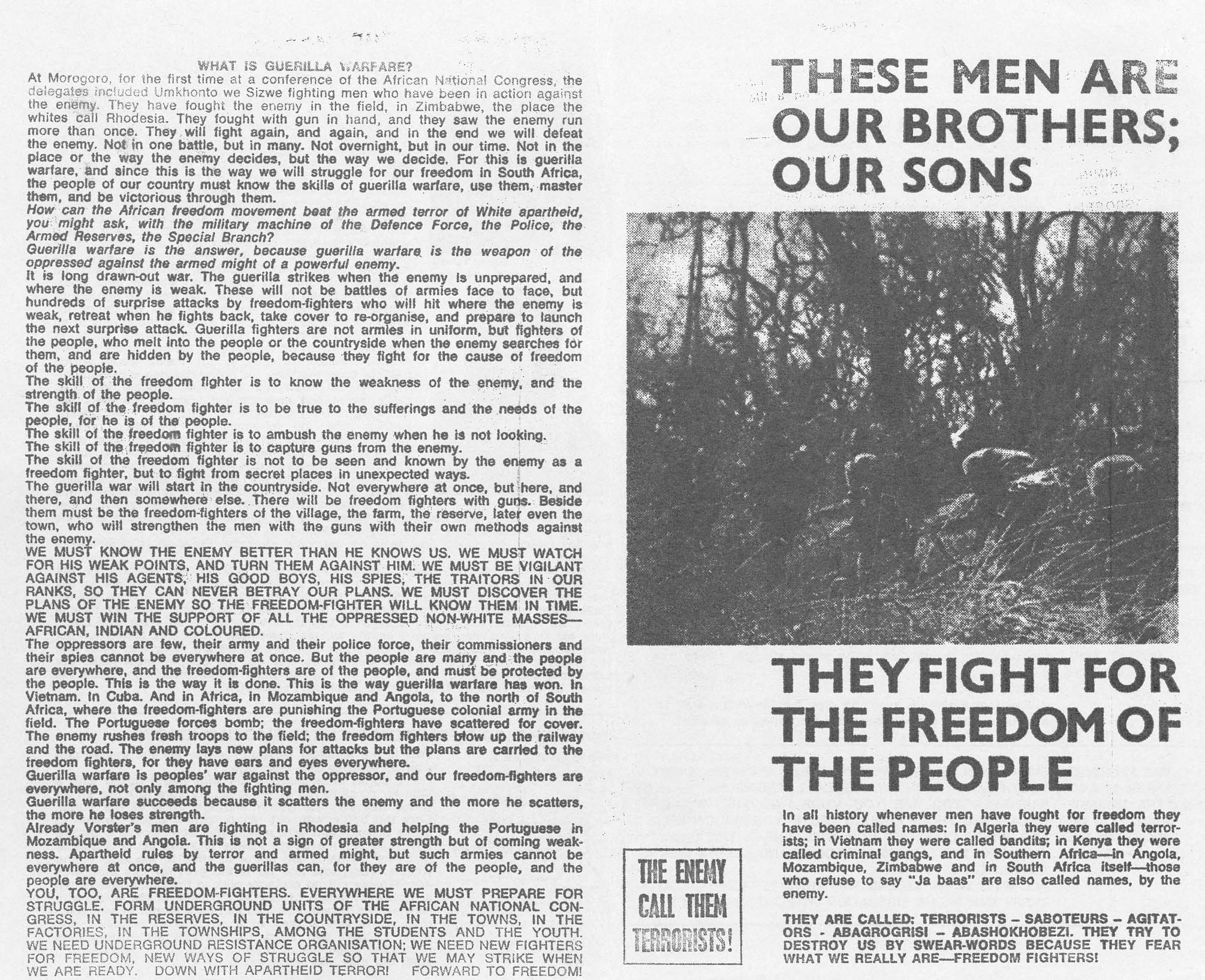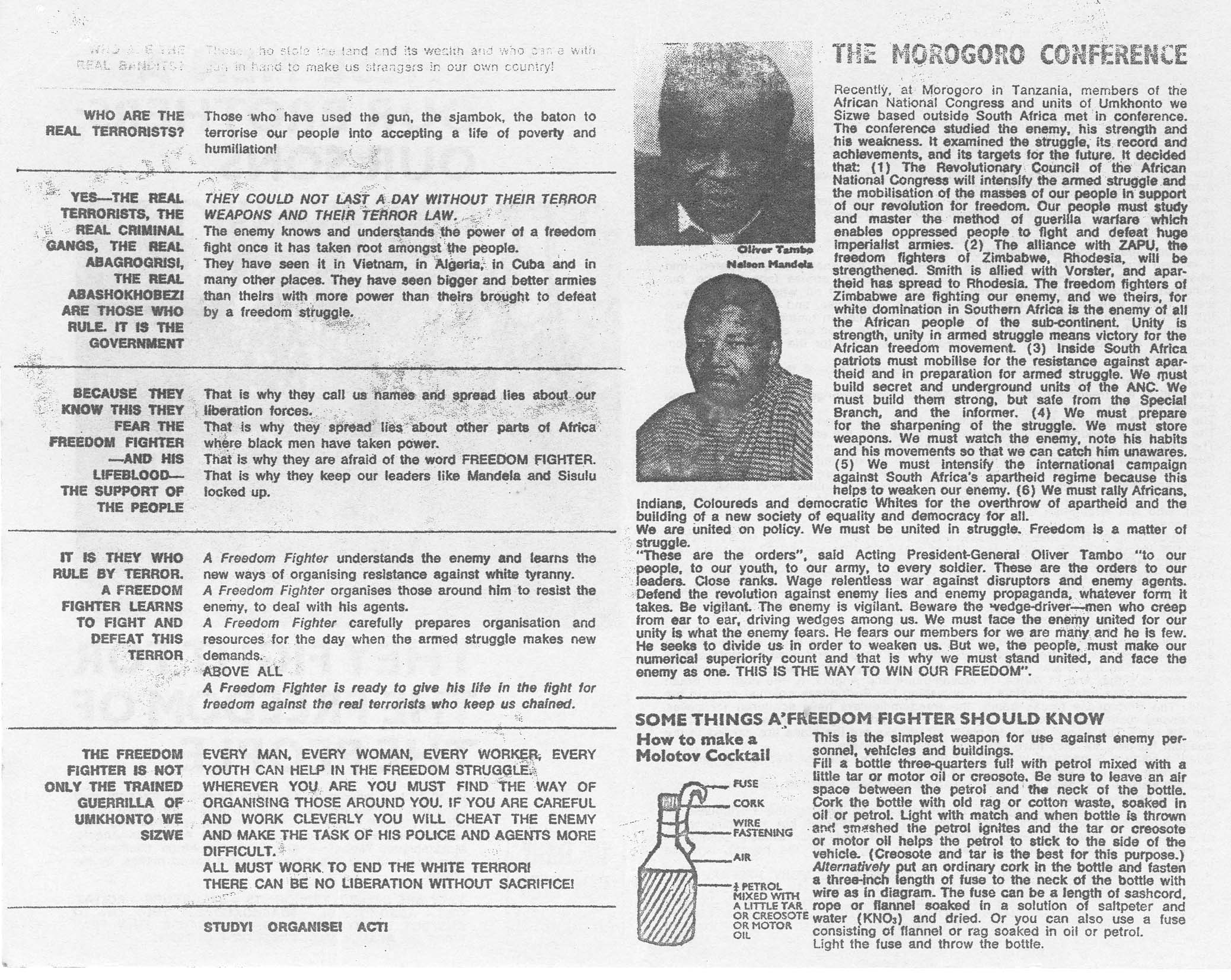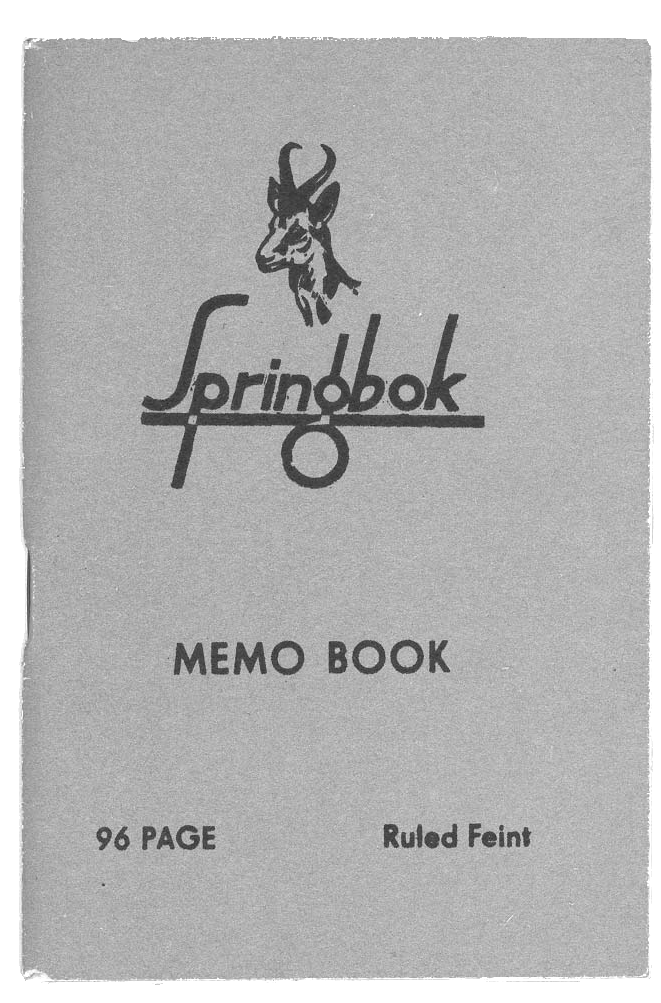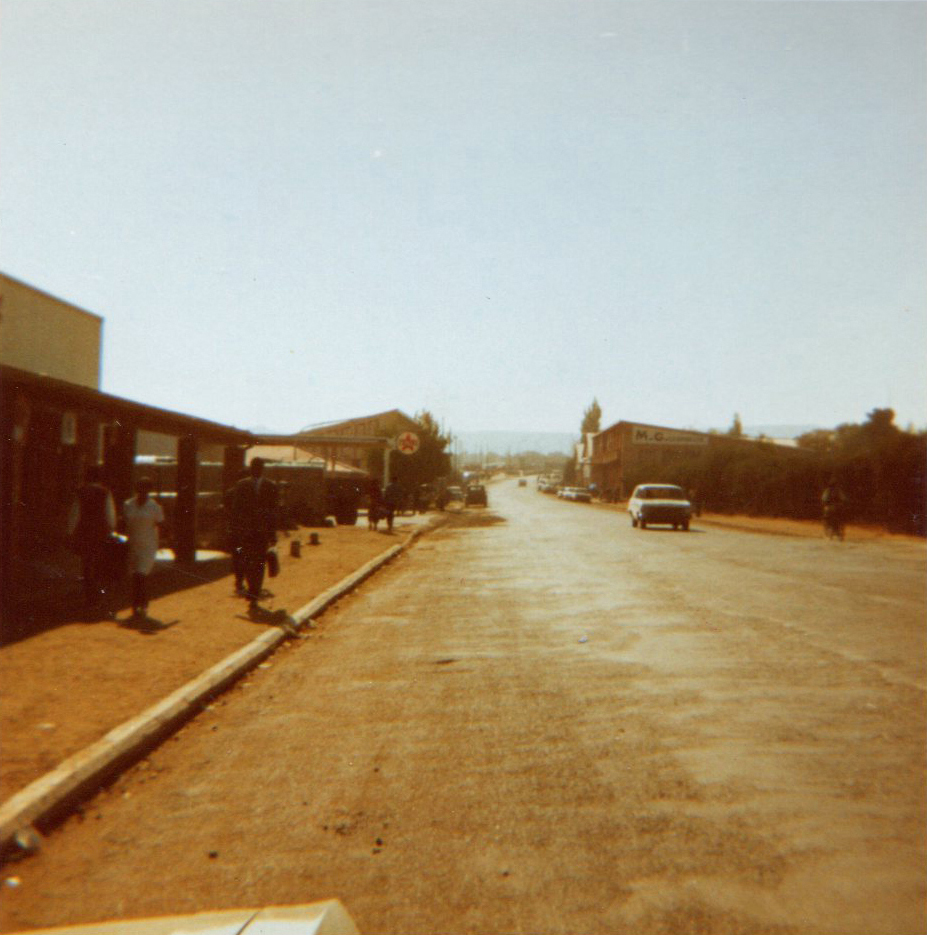London Recruits
In 1968, a number of young men and women were approached to undertake an unusual – and potentially dangerous – task. Smuggle leaflets into apartheid South Africa for the African National Congress and distribute them illegally. They came to be known as the London Recruits.
At that time the ANC was a banned ‘terrorist’ organisation and Nelson Mandela and most of the leadership were in prison or exiled. The aim was to show that the ANC was still very much alive and fighting back against a regime that had the full support of the Conservative government under Margaret Thatcher and the newly elected US president, Richard Nixon.
For many of the young people who flew to South Africa it was the first time they had ever been on a plane. And it was certainly the first time they had ever carried thousands of leaflets and explosive equipment hidden in a false bottom in their suitcase. No one knew there were others doing the same thing at the same time, just in case anyone was arrested.
Once there, they had a few days to set up what were called ‘bucket bombs’ or ‘leaflet bombs’, a simple plastic bucket filled with leaflets and a timer and small charge in the bottom. The buckets could safely be left in crowded areas and when the charge went off, thousands of leaflets would be blown into the air. At the same time, a cassette recording was timed to begin broadcasting a message from the ANC.
This happened simultaneously in Cape Town, Durban, Port Elizabeth, Johannesburg and East London, and had a tremendous impact, not only on the thousands of people who picked up leaflets and took them home (which was totally illegal), but on the racist regime itself.
For ‘James’ and ‘Alice’, their destination was Port Elizabeth, where they stayed in the Grand Hotel and later the Summerstrand Hotel just outside PE. They assembled their ‘leaflet bombs’ and James cycled to Baakens Bridge bus station where he left one bucket in a carrier bag and the cassette player and bike padlocked to a drainpipe, and another bucket at bus stops in Palmerston Street.
“By-standers reported that the police were searching passing pedestrians. A Security Branch officer said afterwards possession of the pamphlet was illegal.”[1]
“Telephoned at his Pretoria home early this morning, Brigadier P J Venter, head of the Security Police, refused to speak to a Rand Daily Mail reporter and put the phone down.”[2]
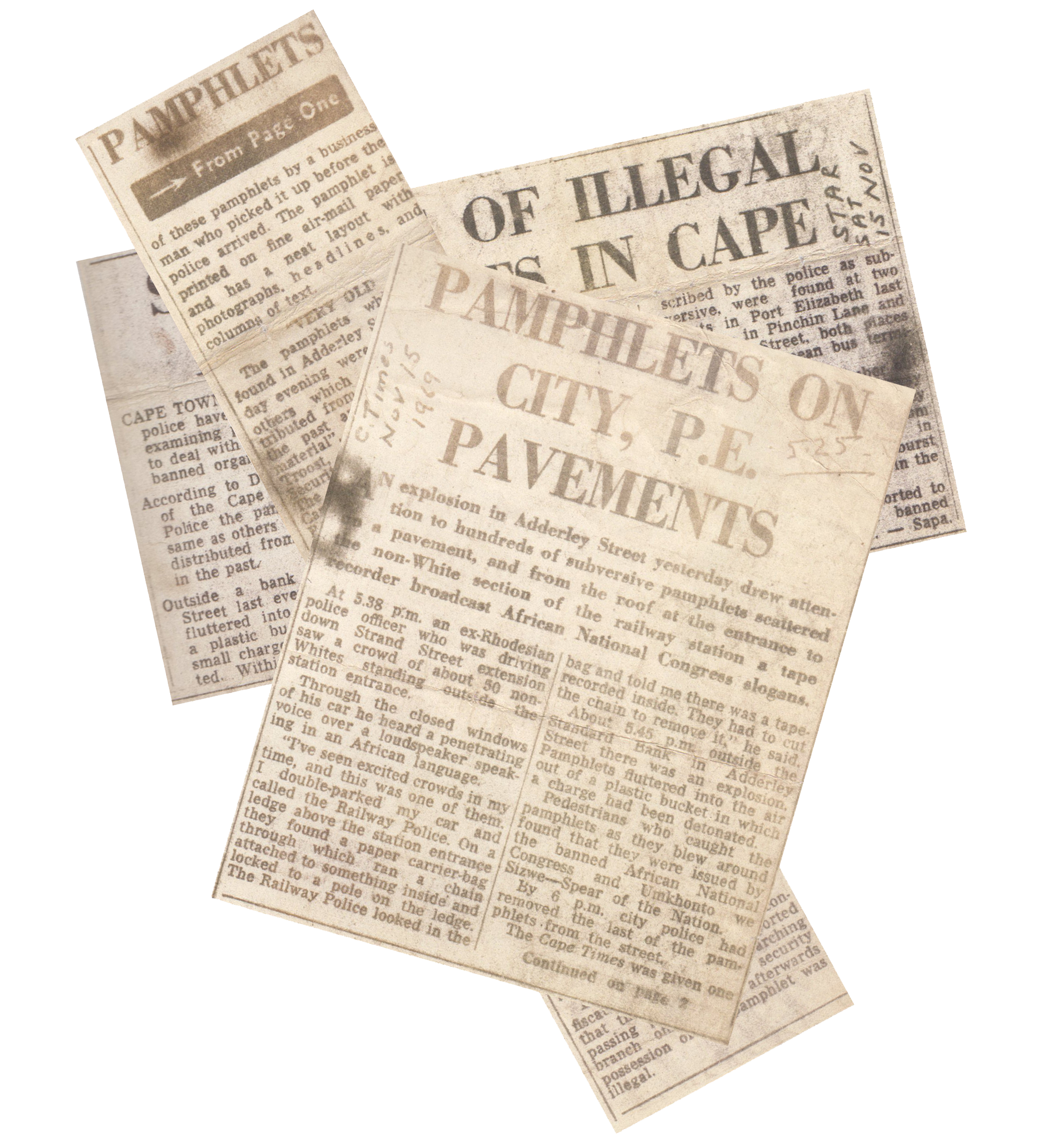
By the time Venter’s comments were published, ‘James’ and ‘Alice’ were on there way to Johannesburg to catch their flight back to London.
They returned to South Africa for another undercover mission for the South African Communist Party in February 1970 , this time by ship because they took with them many hundreds of pamphlets that needed to be posted inside the country.
After spending two weeks in a rented apartment in Cape Town addressing and posting envelopes (not unlike life in London), they flew to Bloemfontein and drove to Maseru in Lesotho to warn someone he was in danger, which turned out to be more hazardous than expected because there had been a coup by Chief Jonathan a few weeks earlier. There was a curfew after 9pm, which they spent with nervous journalists at the Lesotho Inn, listening to sporadic gunfire throughout the night.
After returning to England, they were asked if they would consider moving to South Africa, setting up a business and working undercover, but later ‘Alice’ became pregnant and they knew it would be too dangerous.
In January 1973, the real ‘James’ was falsely named as a co-conspirator with others in the apartheid show trial when Alexander Moumbaris and Sean Hosey, together with Tlou Theophilus Cholo, Maquina Justice Mpanza, Petrus Aron Mtembu, and Gardener Sandie Sijaka, faced possible death sentences and minimum jail terms of five years under the regime’s vicious Terrorism Act. They were accused of conspiring to encourage violent revolution in South Africa. The four Africans were each sentenced to 15 years, Alex, aged 34, to 12 years, and Sean, aged 23, to five years.
After seven and a half years in Pretoria Local Prison, Alex, who had been convicted of distributing ANC pamphlets in Durban in 1967 and 1968, reconnoitering the Transkei to find places for seaborne landings and assisting ‘terrorists’ to enter the country, escaped with white ANC members Tim Jenkin and Steve Lee. The film, ‘Escape from Pretoria’ appeared in 2020, starring Daniel Radcliffe. Sean was released in 1978.
The real ‘James’ continued assisting the ANC by supplying books and other items for consignment to liberation fighters stationed in Zambia and Tanzania, organised by Mohammed Tikly (1939-2020) from the ANC’s office in Penton Street. Mohammed was exiled in London for 22 years. He was director of the Solomon Mahlangu Freedom College in Tanzania from 1982 to 1987. ‘James’ went on to organise Frontline States in 1990.
PS, February 2023
The two films below are the 2001 award-winning documentary ‘The Secret Safari’ about the incredibly dangerous mission of smuggling guns hidden in a safari truck into South Africa between 1987 and 1993, and a short documentary about two of the participants.
[1] Cape Times, 15 November 1969.
[2] Rand Daily Mail, 15 November 1969.

